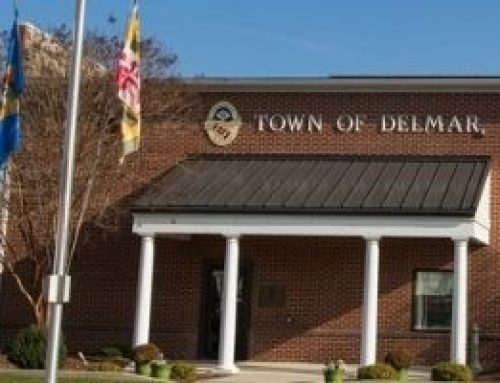Laurel officials are defending the need for the town to take action to implement a 30 percent tax hike in the 2023-24 fiscal year budget.
During the Monday, July 17 meeting of Mayor and Council, Councilman Carlos Oliveras told Town Manager Jamie Smith that he had heard from residents who were upset that the town had increased property taxes by such a large percentage. “I am being asked if there might be a way to transition this 30 percent increase in over three years,” he said. “I know the budget has been approved, but is there some type of amendment that could be made to address the concerns?”
Both Smith and Mayor John Shwed made it clear in response to Oliveras, that it is not possible to adjust the budget, citing the financial stresses faced by the town in an effort to balance the budget.
“This is a balanced budget and in order to accomplish that, there had to be some tough decisions made,” Smith said. “I cannot put numbers in a budget that make it nice and pretty, but are unreasonable in terms of meeting the town’s financial obligations. There are several major cost increases that make a 30 percent increase necessary, including hiring two additional police officers to help protect our community.”
Shwed said talking about the budget after the fact is not feasible. “We discussed this budget and made the decision that as difficult as it is for us as a body, a 30 percent increase was necessary and that is it. We cannot afford to pay our bills with a 10 percent increase over the next three years. I am confident that no one on this council is happy to have to make this type of budget decision, but it is what it is. My taxes will rise by $300 due to this tax increase. I assure you I am not happy about that either.”
In an Executive Summary issued by Smith and posted on the town’s website at the time the budget was under review, offered information about what the council had considered in making the decision to raise taxes so significantly after several years void of property tax increases.
In the summary Smith expressed the town’s understanding regarding the “difficulty and the strain” on property owners that this increase causes in terms of the annual tax bill. She said, however, in order to sustain a balanced budget in the long-term the increase is necessary to meet rising costs the town is facing.
She points to increased costs to operate the town’s various departments, due to increases in supplies and numerous materials and the increases in deteriorating infrastructure and enhanced costs in personnel.
She also said the federal government has placed new regulations governing the town’s wastewater system and a new environmental mandate known as MS-4 (Municipal Separate Storm Sewer Systems). The MS-4 project calls for municipalities to develop and implement a comprehensive Storm Water Management Program that includes pollution prevention measures, treatment or removal techniques, monitoring, use of legal authority, and other appropriate measures to control the quality of storm water discharged to the storm drains and result in access to waterways, including Broad Creek and the Nanticoke River.
Smith said some communities in the local region have incurred costs associated with the implementation of MS-4 as high as a million dollars. “We can’t say we are facing that much of an impact because we are not far enough along to know. But we do know the costs will be extensive,” she said.
Smith said that residential development is slow, but is occurring and this will help to increase the tax base. “We are seeing the tax base gradually increase in residential properties, and I can assure you, that the town staff are working with developers to increase our tax base with more commercial development as well. However, the increase in tax base is not moving as quickly as we had hoped. Also, the Sussex County property tax re-assessments will not be finalized until 2025,” she said.
Laurel uses the Sussex County property tax assessments as the basis for its annual property tax formula. Depending on the outcome of the new assessment, tax rates could increase or decrease depending on the individual property assessments.
Pointing to a rise in crime, namely crimes of violence, Smith said it is necessary to enhance the police department by adding two new officers, bringing the department to 21 officers.
“At present, when the police department is fully staffed at 19, this allows for three officers per shift, but does not take into account vacation, sick, workers comp, required training, court, and other situations that pull officers from their regular shift, which results in only two officers available for the majority of shifts. Public safety and officer safety are top priorities within the police department and to better provide both of those, the town needs to add the additional officers to our force,” Smith said.
The town is also seeing significant cost increases at its water plant with a rise in chemical costs and a 35 percent increase in electric. In addition the costs of federal compliance regulations and the water tower maintenance will increase costs in the water department by more than $100,000.
As a matter of information, Smith pointed out that any funds derived from town water and sewer fees is not available to be applied to the general operating budget.
“By federal law, the water and sewer systems are enterprise funds, which means they are to be fully funded by the system users and not supported by any other funding sources, including taxes or grants,” Smith said. “Any surplus that may be realized in enterprise funds is technically to be set aside into a reserve fund for improvements, upgrades and unforeseen maintenance in that particular fund. It should not be used to offset shortfalls in the general budget.”
The new FY24 budget was adopted by the council in June and went into effect July 1.





